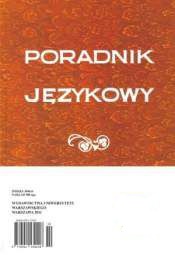O JĘZYKU NAJSTARSZYCH PSAŁTERZY POLSKICH
About the Language of the Oldest Polish Psalters
Author(s): Marek CybulskiSubject(s): Language and Literature Studies
Published by: Dom Wydawniczy ELIPSA
Keywords: psałterz; Psalter; Middle Ages; średniowieczne piśmiennictwo;
Summary/Abstract: There are two complete translations of the Psalter which remained from Polish Middle Ages. The former one, represented by Florian, Puławy and Cracovian editorials, is a verbal translation, pursuing a traightforward delivery of the Vulgate text. The technique introduced into the Polish text foreign syntactic structures, strange phrases and unusual use of vocabulary in unfamiliar contexts. Consecutive editions were reduced mainly to changes in vocabulary, graphic form, phonetic or inflectional forms, voiding syntactic shifts, if they were expected to increase or decrease the number of words within the text. The impact of Czech tradition is a source of seemingly rich synonymy. Taking care about audio effects ccasionally led away from verbal translation. Another example, Żołtarz by Walenty Wróbel, is a free translation, familiarizing theologically and Latin illiterate people with Biblical topics. It characterizes with syntactic amplifications, by which logical relations between the content of sentences were expressed more precisely, the utterances became more coherent, complete and precise. These qualities remained in Glaber's printed version, as his corrections were irrelevant to the stylistic shape of the work, concerning: orthography, phonetics and grammar.
Journal: Poradnik Językowy
- Issue Year: 2008
- Issue No: 10
- Page Range: 23-40
- Page Count: 18
- Language: Polish
- Content File-PDF

